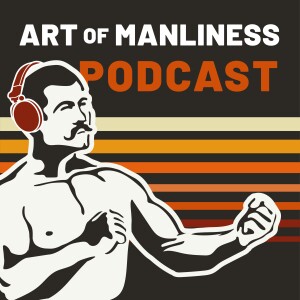
The ancient Greeks and Romans thought a lot about what it means to live a virtuous life. They believed that good character was essential for achieving both individual excellence and a healthy, well-functioning society. For this reason, they also thought a lot about whether virtue could be taught to citizens, and philosophers put this thinking into practice by attempting to educate the moral ideals of leaders.
My guest, professor of philosophy Massimo Pigliucci, explores what the Greco-Romans discovered about the nature and teachability of virtue in his new book: The Quest for Character. Today on the show, Massimo and I discuss how the ancient Greeks and Romans defined virtue, and what it meant to them to live with arete, or excellence. We then look at case studies of philosophers who tried to shape men into being better leaders, including Socrates teaching Alcibiades, Aristotle tutoring Alexander the Great, and Seneca mentoring Nero. Massimo explains how these field experiments turned out, and the takeaways they offer on the question of whether virtue can be taught. We end our conversation with the ancient insights that have been confirmed by modern research that can help us become better people.
view more
More Episodes
#768: Become a Focused Monotasker
 2022-02-08
2022-02-08
 2022-02-08
2022-02-08
#767: Fat Loss Made Simple
 2022-02-07
2022-02-07
 2022-02-07
2022-02-07
#765: C.S. Lewis on Building Men With Chests
 2022-02-05
2022-02-05
 2022-02-05
2022-02-05
#764: Prototype Your Way to a Better Life
 2022-02-04
2022-02-04
 2022-02-04
2022-02-04
#763: The Perils and Powers of Cowardice
 2022-02-03
2022-02-03
 2022-02-03
2022-02-03
#761: How Testosterone Makes Men, Men
 2022-01-31
2022-01-31
 2022-01-31
2022-01-31
#759: To Drink or Not to Drink
 2022-01-30
2022-01-30
 2022-01-30
2022-01-30
#757: How to Achieve Cognitive Dominance
 2022-01-26
2022-01-26
 2022-01-26
2022-01-26
#754: A Surprising Theory on Why We Get Fat
 2022-01-24
2022-01-24
 2022-01-24
2022-01-24
#753: Take Back the Weekend
 2022-01-24
2022-01-24
 2022-01-24
2022-01-24
#753: Take Back the Weekend
 2022-01-24
2022-01-24
 2022-01-24
2022-01-24
#752: The Metaphysical Club
 2022-01-23
2022-01-23
 2022-01-23
2022-01-23
012345678910111213141516171819
Create your
podcast in
minutes
- Full-featured podcast site
- Unlimited storage and bandwidth
- Comprehensive podcast stats
- Distribute to Apple Podcasts, Spotify, and more
- Make money with your podcast
It is Free
- Privacy Policy
- Cookie Policy
- Terms of Use
- Consent Preferences
- Copyright © 2015-2024 Podbean.com





